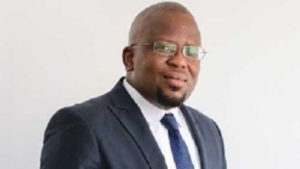Former US president Bill Clinton urged Democrats on Wednesday to strive for an inclusive politics of "common good" and fight back against, what he called the "divisive approach" of Republican leaders.
Less than three weeks before November 7 elections to decide control of Congress, Clinton said US political debate had been degraded by "ideological, right-wing" Republicans who demonised opponents and concentrated power in the hands of a privileged few.
Clinton said he longed for a politics that celebrated differences and disagreements without condemnation, and worked toward equal opportunity, shared responsibility and a sense of community.
"Ideological, divisive, demonising, distracting politics, they may be very good for an election, particularly when people feel unsettled and insecure, but they don't do much to advance the common good", he said at Georgetown University, on the same stage where 15 years ago he called for a "New Covenant" in politics. "This sort of politics, striving for the common good, for me stands in stark contrast to both the political and governing philosophy of the leadership in Washington today and for the last six years," he said.
Clinton, whose presidency from 1993 to 2001 was marked by pitched battles with Republican congressional leaders, including his impeachment, said there was nothing wrong with a hard-nosed fight over philosophy or issues.
"It's not that we want a bland, mushy meaningless politics. We like our debate", Clinton said. "But we want it to be connected somehow to the real lives of real people."
Walking his talk, Clinton has teamed recently with former Republican President George Bush, the current president's father, on relief efforts for victims of the Asian tsunami and Hurricane Katrina.
You may disagree with Clinton's words that, "If you've got an ideology, you've already got your mind made up. You know all the answers and that makes evidence irrelevant and arguments a waste of time." But here in Ghana we cannot pretend not to see real wisdom in the call for a higher kind of politics. We need to grow from the very narrow interpretation of the paraphrase, 'My party, right or wrong.' When Disraeli said "damned your principle, be loyal to the party," he did not mean that political parties could do without principle. His view was that where your personal principles conflict with that of the party, argue your case within the structures of the party, and when you fail, accept defeat and stay loyal to the party.
Unfortunately, here in Ghana, we seem to think that being loyal to the party means defending everything presumably said or done directly or indirectly in the name of the party. We seem to think that it means picking up a fight against everything said by the other side, right or wrong. If loyalty was exercised in automation without thought, political parties would have died from the poverty and stagnation of ideas.
It is but the nature of things that much of the world's radical but practical reforms in governance have been undertaken by so-called conservative parties, through the naturally political phenomenon called evolution.
We need a lot of tolerance in our politics. This is because it is ideas that move the world. More specifically, it is allowing different ideas to be scrutinised on their merits that enables these ideas to move the world. Above all, it is when ideas are allowed to grow, shaped and implemented, that makes our world move.
So far our politics is too low on substance but high on belligerence. In the dusty midst of low blows, ideas are lost to the wind and serious, productive discourse becomes a hostage to fortune. We need to raise the level of our politics. Our children's future depends on it.
Editorial News of Friday, 20 October 2006
Source: Statesman












